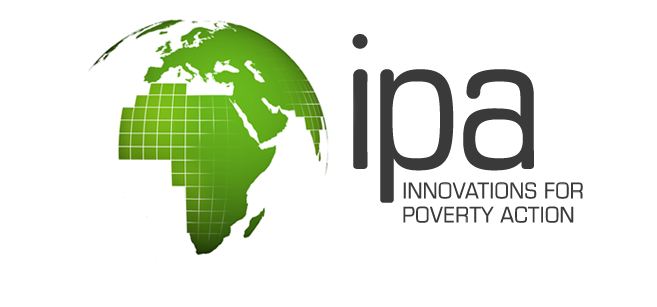As COVID-19 spreads around the world, IPA's Peace & Recovery Program is accepting off-cycle proposals, capped at $50,000, for time-sensitive research projects and additions to research projects that study or support the COVID-19 response.
Priorities
IPA have two priorities for COVID-19 off-cycle funding. To the degree possible, successful proposals will address both.
- To produce information that can directly inform the humanitarian response to COVID-19.
- To produce generalizable knowledge that contributes academic literature on resilience, response, and recovery, in line with the goals and methods.
Projects
This funding window could support projects that:
- Generate new data to directly inform the COVID-19 response of committed partners.
- Evaluate interventions that are expected to improve COVID-19 response or recovery.
- Add a module to an existing survey in order to track COVID-19 exposure or response.
- Add a treatment arm that may support communities' resiliency in response to COVID-19.
- Anonymize, curate, and share already-collected data quickly so that it can be used for decision-making by the humanitarian community.
- Conduct a “downstream survey" that follows up on a sample that participated in an already-completed randomized trial in order to identify whether the intervention studied has an impact on the communities' response to COVID-19 Projects that can provide rapid results and/or actionable data to stakeholders involved in the response to COVID-19 will be prioritized.
Funding Information
Funding will be for qualified research costs. The P&R Program generally cannot fund:
- Program or intervention implementation costs, except in rare circumstances.
- Salary costs for researchers from institutions in developed countries (funding for the salaries and/or time of researchers from institutions in developing countries will be considered on a case-by-case basis by the review committee).
- Purely qualitative research that does not contribute to the development of impact evaluations.
- Lab in the field or survey experiments, except in rare circumstances or within the context of a broader impact evaluation.
- Research using historical datasets, except in the context of a broader impact evaluation.
- Research in high-income countries.
Eligibility Criteria
- Researcher Qualifications. Researchers must be affiliated with an academic institution, and either hold a PhD or be currently pursuing a PhD in a relevant discipline. They must demonstrate experience in field research and randomized evaluations and have sector expertise.
- Successful applications will come from researchers with a track record of published field experiments in top outlets.
- Practitioners and institutions that implement interventions should partner with academics with strong track records implementing similar research studies in order to apply for funding. IPA's P&R Program is available to support matchmaking with researchers.
- Successful applicants will have a research team or staff that has the necessary experience to study the emergency response. As a result, interdisciplinary teams are encouraged.
Evaluation Criteria
Projects are assessed against five, equally weighted evaluation criteria:
- Academic contribution
- Does the study make a significant contribution toward advancing knowledge in the field? Does it answer new questions or introduce novel methods, measures, or interventions? Is there academic relevance? How does the study compare with the existing body of research? Does the research strategy provide a bridge between a practical experiment and underlying economic theories?
- Policy relevance
- Does the study address the priority questions outlined in the P&R Guiding Principles and Funding Priorities document? Will results from the intervention have generalizable implications? How, if at all, will the “lessons learned” have relevance beyond this test case? Is there demand from policymakers for more/better information to influence their decisions in this area? Is there potential for the implementing partner to scale up this intervention?
- Technical design
- Does the research design appropriately answer the questions outlined in the proposal? Are there threats that could compromise the validity of results? If so, does the proposal sufficiently address those threats? What changes could the researchers make to improve the design? For full study proposals, are there sufficiently detailed power calculations?
- Project viability
- Is the relationship with the implementing partner strong and likely to endure through the entire study? What is the credibility and policy influence of the implementing partner? Are there any other logistical or political obstacles that might threaten the completion of the study, for example, government authorization or Human Subjects review? For pilots, do researchers describe how piloting activities would inform a full-scale randomized evaluation? Does the research team have a track record of implementing successful projects similar to the one being proposed?
- Value of research
- Is the cost of the study commensurate with the value of expected contributions to science and policy? Does the study leverage funding from other sources?
Post Date: April 02, 2020
About
Innovations for Poverty Action (IPA) is a research and policy nonprofit that discovers and promotes effective solutions to global poverty problems. IPA brings together researchers and decision-makers to design, rigorously evaluate, and refine these solutions and their applications, ensuring that the evidence created is used to improve the lives of the world’s poor.
